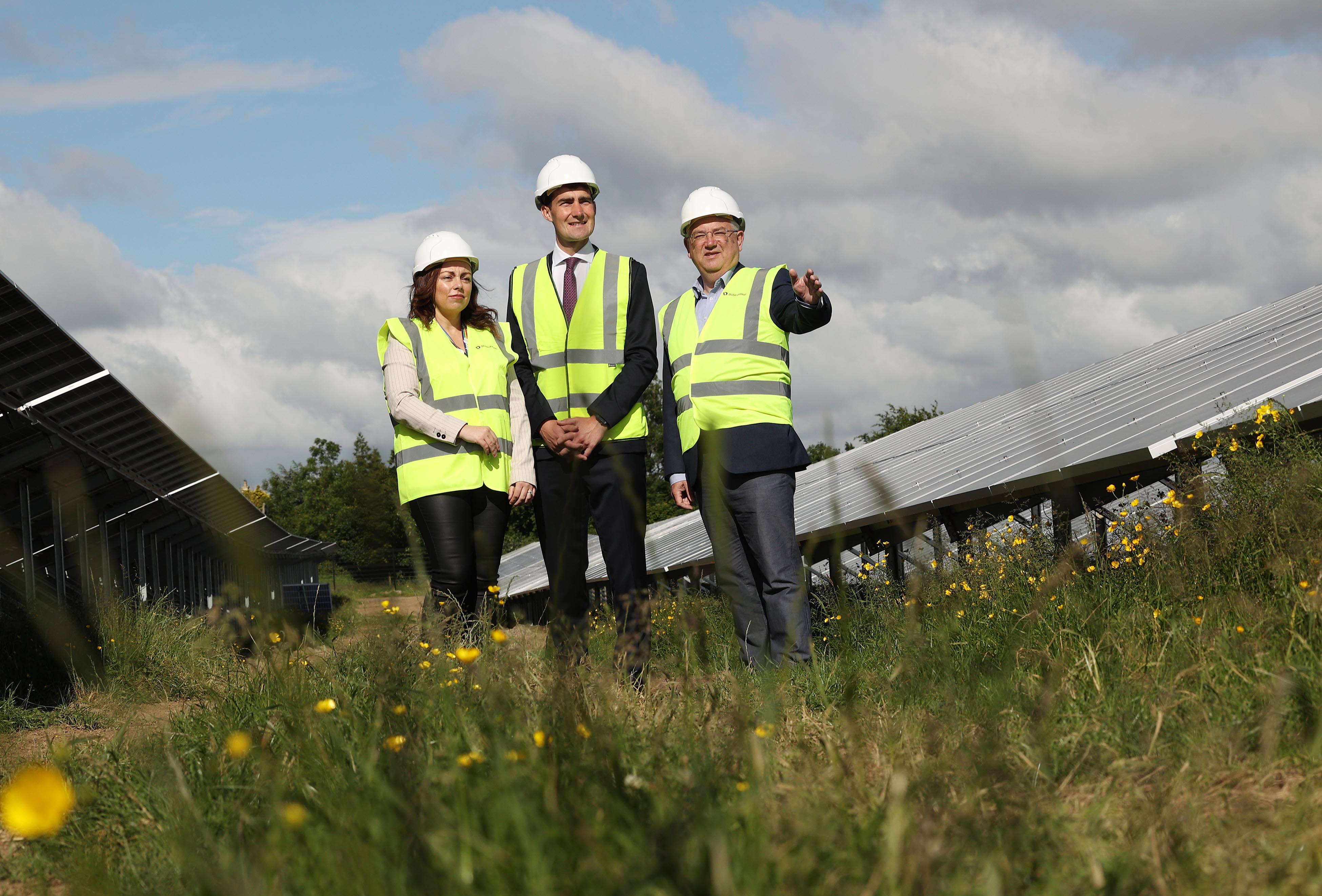
daa, the operator of Dublin Airport, is exploring the potential of geothermal energy as a renewable, low-carbon energy source to heat and cool Dublin Airport.
The news was announced ahead of the 3rd National Geothermal Energy Summit taking place at Dublin Castle today.
Geothermal energy comes from heat in the Earth's core. While temperatures fluctuate above ground, a few feet below the Earth's surface the ground remains at a relatively constant temperature. Dublin Airport can benefit from geothermal energy by using ground source heat pumps (GSHP) onsite at the Dublin Airport campus. These use underground pipes to warm water that can then be used to help heat buildings and are a renewable, low-carbon energy source. Other European airports availing of this technology include Copenhagen, Paris-Orly, Amsterdam Schiphol, Geneva, and Louisville and Vancouver International airports in North America.
High-level feasibility works to determine the viability of geothermal energy to meet Dublin Airport’s heating and cooling demands efficiently took place in 2022. These confirmed that the Dublin Airport campus is an effective geothermal resource suitable for a GSHP system. daa has now issued a selective tender for a comprehensive geothermal feasibility study and initial design for Dublin Airport. The plan will explore the suitability of geothermal energy as a renewable alternative to heating and cooling many of our terminals and campus buildings. daa is seeking to meet a heating and cooling load between 7MW and 10MW through geothermal energy. It expects to have the outcome of the feasibility study in summer 2025.
Andrea Carroll, daa’s Group Head of Sustainability, commented: “We are excited to explore the potential of geothermal energy – known as the ‘heat beneath our feet’ – as a sustainable solution for heating and cooling at Dublin Airport. This initiative, along with our new solar farm which became operational last month, underscores our commitment to reducing our carbon footprint and advancing towards our goal of net zero carbon emissions by 2050. By integrating innovative renewable energy technologies, we are not only enhancing the sustainability of our operations but also setting a benchmark for other airports globally.”
daa has been supported in its explorations by Geological Survey Ireland (GSI), a division of the Department of Climate Change which promotes the uptake of geothermal as a renewable heating resource to reduce Ireland's CO2 emissions.
Dublin Airport solar farm now operational and generating 13% of electricity needs
daa also confirmed that around 13% of Dublin Airport’s current annual electricity needs are now being provided by a new 9MWp solar farm on the airport campus. Installed by Enerpower, one of Ireland’s leading providers of renewable energy solutions, phase one of the Dublin Airport solar farm became operational in October.
The solar farm has more than 15,000 solar photovoltaic (PV) panels, which is a clean and renewable energy source that converts sunlight directly into electricity using PV cells and emitting no greenhouse gases or pollutants.
The solar farm is expected to generate 9.02GWh per annum, which is 13% of Dublin Airport’s annual electrical consumption or the equivalent of powering approximately 1,600 homes for a year. This is sufficient to cover the electricity needs of the entire airfield at Dublin Airport, with excess electricity contributing to the energy needs of the airport terminals and campus. Dublin Airport is reviewing a second phase of the solar farm project, which would be a similar order of scale and located on the airport campus.
This renewable energy source will help Dublin Airport meet its commitment to reduce its direct emissions (Scope 1 and 2) by 51% by 2030, which aligns with the public sector targets set as part of the National Climate Action Plan, and ultimately towards achieving net zero carbon emissions by 2050 at the latest. Dublin Airport’s capital investment plan, together with the Infrastructure Application submitted to Fingal County Council last December, identifies a suite of projects that will provide significant sustainability benefits with investments totalling €400 million.
Dublin Airport also continues to work with its aviation and transport partners to find ways to reduce carbon emissions (Scope 3) which are outside of Dublin Airport’s direct control. These emissions emanate from many sources including aircraft flight emissions and passenger transport to and from the airport. Dublin Airport is supporting its airline customers’ exploration of sustainable aviation fuels (SAF) and the possibilities of hydrogen and electricity-powered flight. It is also supportive of ambitious public infrastructure projects including MetroLink and BusConnects, which will reduce passenger emissions as they travel to and from Dublin Airport.
Other recent sustainability initiatives include a 90% reduction in carbon emissions from airside vehicles by switching from diesel to Hydrotreated Vegetable Oil (HVO) and participating in government taskforces on SAF and hydrogen to accelerate these alternatives.